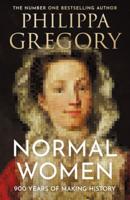Publisher's Synopsis
A history of arithmetic from 1478 to 1600. The result of a research into the subject matter and teaching of arithmetic in the fifteenth and sixteenth centuries; and an exposition of the bearing of the arithmetic of that period upon the present teaching of the subject.
-Teachers College Bulletin [1910]
* * * * *
From the PREFACE.
Although there is much material on the history of sixteenth century arithmetic, comparatively little has been written on the teaching of the subject at that time, and less upon the educational significance of that teaching from the point of view of the present.
This dissertation is the result of a research into the arithmetic of the fifteenth and sixteenth centuries for the purpose of showing its bearing upon the present teaching of the subject. The exact period chosen is that from 1478, the date of the first printed arithmetic, to 1600, because between these dates arithmetic took on the form which it retained for three centuries, besides setting forth for the first time its educational functions. So little was written at that time on the educational values of studies that it is necessary to examine with unusual care the treatises and text-books on arithmetic in order to determine the principles and aims which guided their authors in creating them.
No general history of mathematics can be of use in a research of this kind, unless it contains extensive extracts from the original sources, and there is only one such work, namely, that of Cantor.1 But, if one were to depend upon Cantor for a treatment of sixteenth century arithmetic, he would obtain an exhaustive knowledge of the leading writers only, whereas the great mass of minor works is necessary to supply a large portion of the data needed to determine the educational significance of the subject. No one has expressed more clearly than De Morgan the relative value of major and minor works for the purpose of interpreting history. "Unfortunately, history must of necessity be written mostly upon those works Which, by being in advance of their age, have therefore become well known. It ought to be otherwise, but it cannot be, without better preservation and classification of the minor works which people actually use, and from which the great mass of those who study take their habits and opinions; -or- until the historian has at his command a readier access to second and third rate works in large numbers; so that he may write upon the effects as well as the causes." Other general histories of mathematics like those of Kastner, Suter, Hankel," Gunther,4 and Gerhardt8 contain very brief expositions of the arithmetic of the Renaissance, and all having been written before Cantor's work furnish little, if anything, of importance not covered by him.






